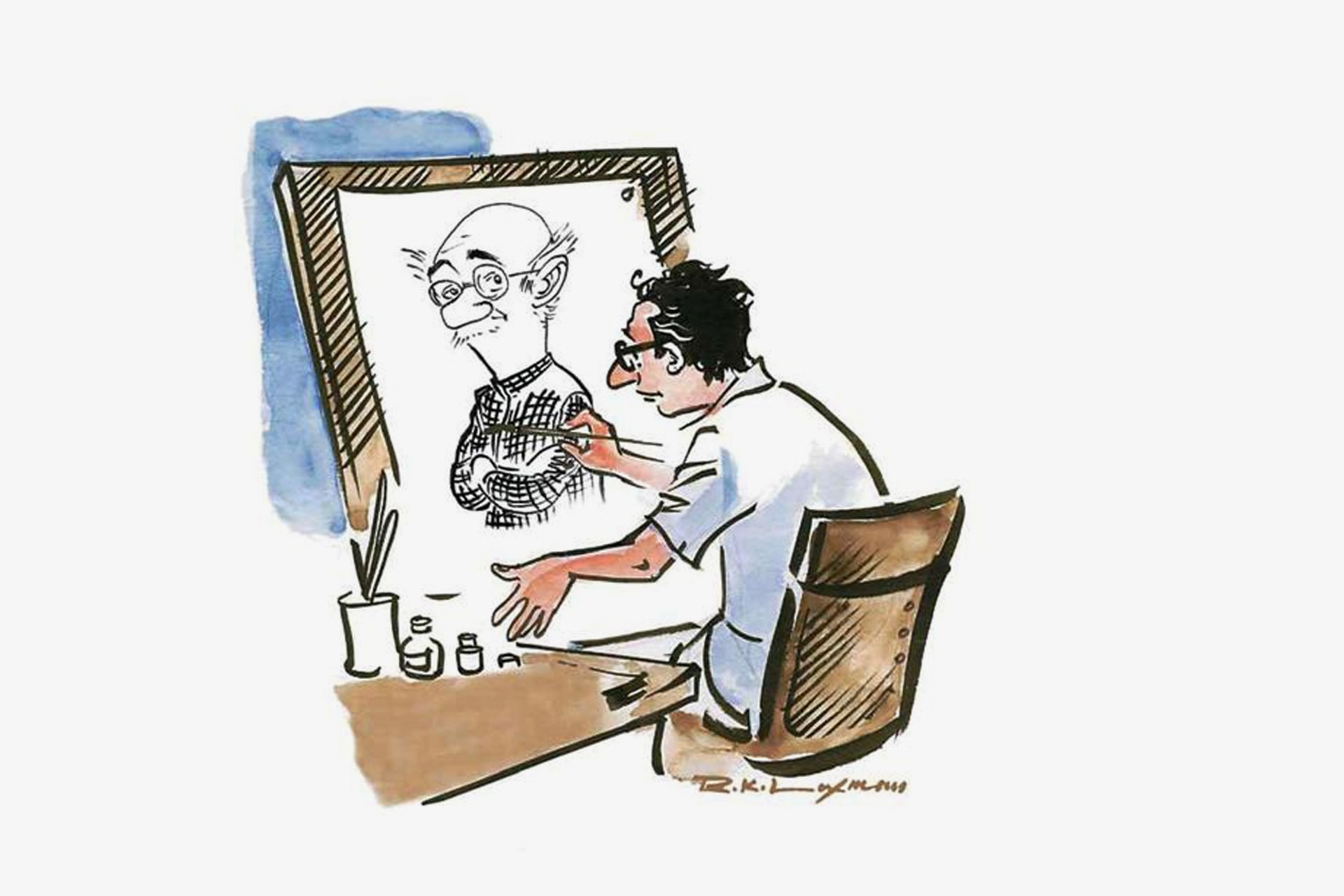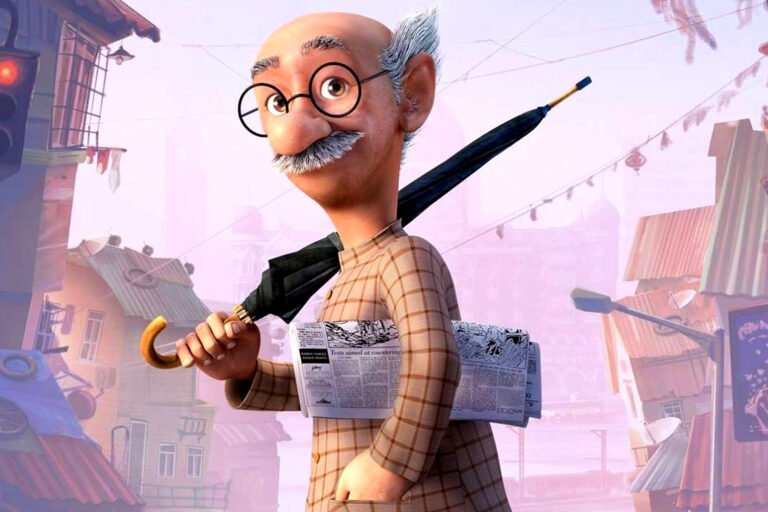Rasipuram Krishnaswamy Laxman, known as R.K. Laxman, was an Indian cartoonist who created the comic strip ‘You Said It,’ featuring the character ‘Common Man’ – a silent observer representing the common Indian citizen. The comic strip addressed the hopes, aspirations, and challenges in the lives of ordinary Indians. The character became immensely beloved among the Indian public and entertained generations over the past few decades.
Laxman’s attraction to drawing began early, as he started doodling on the floors and walls of his home. His interest in drawing quickly turned into a passion, and he filled every available space in his home with his doodles. It became evident to him that drawing was his life’s purpose.
Born on October 24, 1921, in Mysore, India, at the residence of a headmaster, he was named Rasipuram Krishnaswamy after his father. His full name became Rasipuram Krishnaswamy Laxman. He was the youngest among his siblings, with an elder brother named A.K. Narayan, a well-known writer in English.
Laxman’s inclination towards sports and aversion to academics led him to focus on drawing. He used to create line drawings on any available surface, be it walls, floors, doors, or windows. One day, his mother advised him to at least graduate. Laxman thought, “Mother is right.” After that, he started paying attention to his studies, although his connection with drawing persisted.

Surprisingly, the renowned J.J. School of Arts in Mumbai initially rejected Laxman’s admission. However, years later, the same school invited him as the Chief Guest at their annual function. Such twists of fate have been abundant in Laxman’s life. Hindustan Times denied him a job in his early days. Later, he was honored with the Durga Ratan Award by the same group. The Times of India initially offered him a meager salary of two hundred and fifty rupees per month. When he eventually secured the job, it was at a monthly salary of five hundred rupees.
He is best remembered as the creator of the ‘Common Man,’ an ordinary, middle-aged man with a dhoti, a trademark checked coat, unruly hair, and a bent gait. This character, representing the common Indian, became so popular that, in 1988, on the occasion of the 150th anniversary of The Times of India, the Indian Postal Service featured Laxman’s caricature on a commemorative postage stamp.
Laxman was honored with the Raman Magsaysay Award in 1984 for Journalism, Literature, and Creative Communication Arts. In 2005, he was conferred with the Padma Vibhushan, India’s second-highest civilian award, recognizing his significant contribution to society.

1 Comment
Reading this felt like having a conversation with someone who knows exactly how to make you see things in a new light.